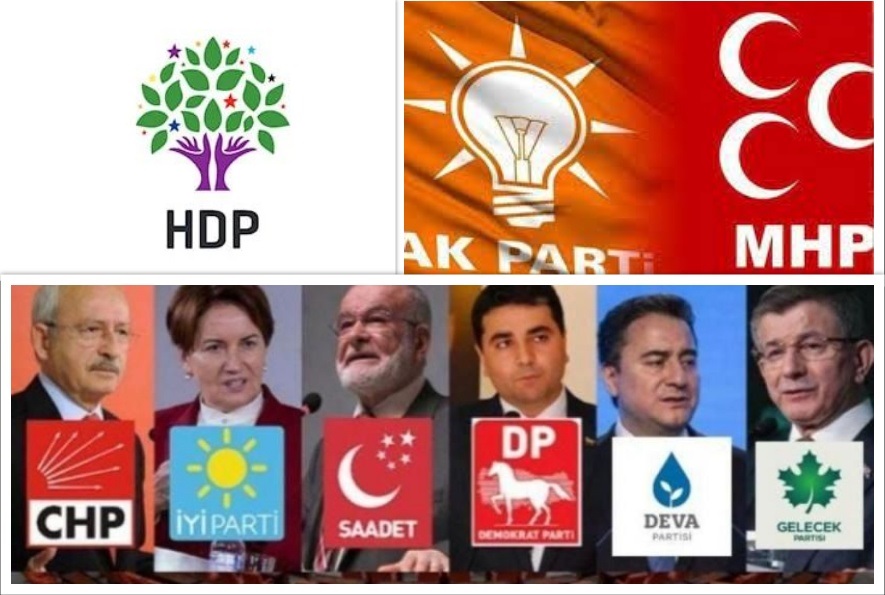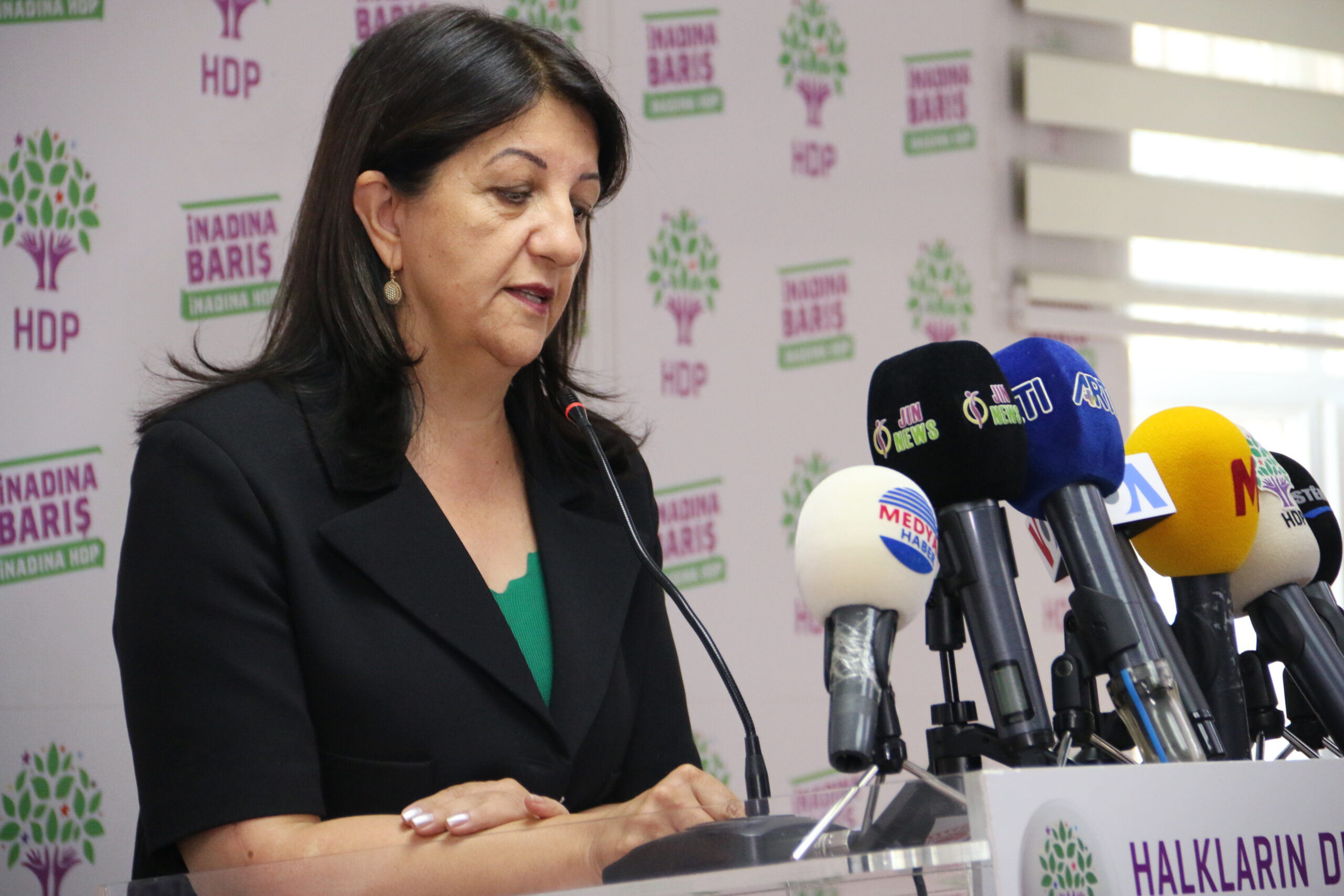Robin Fleming
The attention of the world, specifically Kurds and their allies, is on Turkey now. I am not alone in eagerly reading each new bit of information being released about the upcoming election. The fate of Turkey’s internal politics, the future of the Kurds throughout all parts of Kurdistan, and Turkey’s role in global politics are all heavily dependent on the outcome of 2023’s election. Why are these elections so pivotal? What is at stake for Kurds? What real chance is there for Erdoǧan and his ruling Justice and Development Party (AKP) to be displaced? What are the alternatives to AKP?
There are three alliances running for the upcoming election.

Firstly, the People’s Alliance. This alliance is dominated by Erdoğan’s AKP and the Nationalist Movement Party (MHP). The approach of the People’s alliance can be described as far-right, nationalist and Islamist.
Next we see the Nation Alliance composed of six opposition parties, led by the Republican People’s Party (CHP). Do not be fooled by the term ‘opposition,’ despite opposing the re-election of Erdoğan many policies proposed by opposition parties fail to differ much from AKP’s militaristic and nationalist approach, especially when concerning Turkey’s treatment of Kurds. Unlike the People’s alliance, the Nation Alliance can be described as ‘secular, nationalist and liberal.’
Finally, offering the third way we see the Labour and Democracy Platform, led by the pro-Kurdish HDP, or People’s Democratic Party. This alliance is the only one demanding real change in Turkey, and the only one truly advocating for Kurdish people, minority rights and direct democracy in Turkey.
AKP has been in power since 2002, and formed the People’s alliance by joining with MHP in 2015 which went hand in hand with AKP becoming even more radicalized, right-wing, and belligerent towards Kurds. Elections are regular events, Turkey holds a presidential election every five years. Won’t 2023’s election just mean the likely continuation of AKP’s power, as we have seen since 2002? Not necessarily, these elections have a big potential for change in Turkey and the HDP will be at the center of that change.
According to pollsters who have analysed voter statistics, no one bloc or alliance has enough of the votes to win the elections, which must be won by an over 50% vote. At the moment the People’s Alliance and the Opposition parties are just about tied, with neither having too much of an advantage over the other. Then, on the other hand, we have the Labour and Democracy Alliance led by HDP, which has been predicted to take 15% of the vote. This has pollsters saying that who ever HDP decides to support which win beyond a doubt.
Which is why it caused a big splash when HDP announced that it will be running its own, until now unnamed, candidate in the elections. The party’s co-chair Pervin Buldan said:
“We are in partnership neither with the People’s Alliance nor the Nation Alliance. We have an approach based on principles and when the time comes we can sit and talk together, negotiate, stay in dialogue. But the HDP’s current decision is to run for the elections with its own candidate.”

HDP’s decision to run its own candidate has essentially guaranteed that no candidate will be nominated in the first round of elections, because if no candidate can secure more than 50% of the vote, which no one can do without HDP’s 15% of the vote, ‘run-off’ elections will be held between the two candidates with the most votes.
HDP has received criticism for running its own candidate and not united with other opposition parties to secure AKP’s loss. But Senior Party official Meral Danış Beştaş has stated that the Kurdish issue is a non-negotiable factor for HDP in the imminent elections:
“The approach to the Kurdish issue is one of the litmus tests. Like being against racism. Everybody needs to break the mould on this issue. We need to come to terms with the past. We need to accept that Kurds, like everybody else, own this country and are equal citizens,” she continued:
“To date, we have objected to only one name, that of Mansur Yavaş,” referring to a potential candidate put forward by the Nation Alliance. “HDP voters will never lean towards him as a candidate. For us, he is not in the equation.”
It’s undeniable that HDP’s role in the election could be a complete game changer, and HDP’s priority is Kurdish and minority rights. This means that Kurds are at the center of the whole election, and therefore, unsurprisingly, HDP have been under attack the last few months.
In early January, the Turkish constitutional courts froze HDP’s treasury accounts and access to funds as part of an ongoing campaign to shut the party down. A campaign which chief advisor of Erdoğan, Mehmet Uçum, believed will be successful as he said on 9 January. He said:
“It is said that there is lots of evidence in the case file. It is said that documents have been requested from the chief prosecutor. From that point of view, the party’s closure is a likely outcome, given the constitutional law and the law on political parties.” On 10 January, unknown arsonists set fire to HDP’s offices in the Turkish province of Muȿ.
Efforts against HDP and pro-Kurdish groups in Turkey have only intensified as the elections become closer on the horizon. This is because HDP’s role and the Kurdish issue are at the heart of the election, an election which could drastically change the landscape of Turkish politics. And I suppose this scares Erdoğan, AKP and opposition parties, to know that their potential failure or success could be in the hands of HDP and the Kurds who they have consistently attacked or at best ignored until now.
The presidential elections will be held as early as May, or as late as June, with no date set in stone yet, and no clear victor. What is clear is that Kurds power can no longer be ignored in Turkish politics.
Robin Fleming is an American Researcher who worked with the Rojava Information Centre and specialises in North and East Syria.










